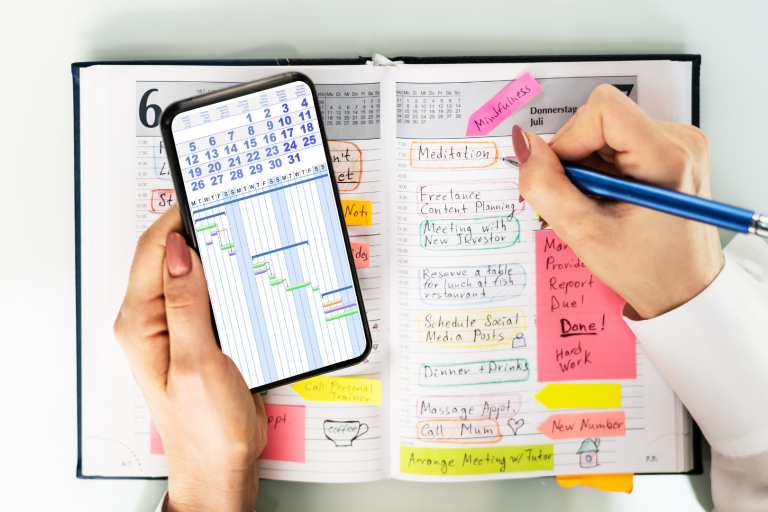- Negotiation and compromise
- Demonstration warmth
- Exchanges use of humour and negotiation
- Agree to differ
- Being respectful
Reducing Family Conflict
Resolving Family Conflict
We often get stuck in a rut with relationships and how we sort out our disagreements. We stop talking and listening to each other - both as partners or as parents (whether parents are together in a relationship or not), or as part of that wider family. Often, we don't even realise what we are doing or how that may make the other person feel.
When you learn how arguments work you can learn to keep them under control. Learning to argue in ways that are helpful rather than harmful is vital for maintaining healthy relationships. There are things that we can try that will help restore some of the positivity in how we talk and communicate with each other.
Family Matters Cumbria is raising awareness of where to find information and support when family life gets a bit difficult.
Helpful & Harmful Conflict
Better Communication for Families
| Communication Types | What poor communication looks like: | How you can protect against it: | ||
|---|---|---|---|---|
| Criticism | Criticism isn't the same as complaining. It's a direct attack on your partner. "You only think about yourself." | Try starting a sentence with "I..." and asking for what you need. "I was worried last night. I'd like it if you could text me when you're going to be late." | ||
| Contempt | Contempt is when we are deliberately mean. We might use name-calling, or sarcasm, or roll our eyes to show we're not interested. | Focus on what you love about each other. Look for opportunities to pay each other compliments and do things together that you both enjoy. | ||
| Defensiveness | Defensiveness is usually a response to criticism. We deflect blame onto the other person. "I've been busy. Why couldn't you do it? | Look at things from each others point of view. Take responsibility and say sorry when you're in the wrong. | ||
| Stonewalling | Stonewalling is when we get so overwhelmed that we shut down completely, blanking your partner. | Be good to yourself. Take some time out to do something relaxing and enjoyable. |
Learn how to keep arguments under control

The magic ratio: for parents
Even the happiest of couples have negative moments. We snap and criticise. We shout and blame. What would it take to balance these out?
Relationship experts tell us that for every 1 negative moment, you need to create 5 positive moments!
Start practising with the magic ratio:
- Think about your relationship
- What positive things could you do for each other?
- What can you do to show that you care?

Your Typical Day
Sometimes it can help to work out what is causing arguments. When is it that we get stressed the most?
Getting ready for school, bedtimes, mealtimes, shopping?
What can you do to prevent arguments starting? Little changes can make a BIG different.
Try looking at your typical day and seeing what the trigger points are. Come up with some things that might help. Small things like getting uniform or PE kit prepared the day before, agreeing a rota etc can help.

Understanding how arguments work
- What issues do you argue about the most?
- What usually starts an argument?
- What makes it worse? are you fuelling the fire?
- What helps calm things down?
Here are a few things to try:
- Can you think of what your logs are?
- The next time you argue, see if you can tell when you're pouring fuel.
- Think about what you could pour water into and try it out.

You vs I Statements
An "I" message or "I" statement is a style of communication that focuses on the feelings or beliefs of the speaker rather than the thoughts and characteristics that the speaker attributes to the listener.
Construct an "I" statement which takes the phrase from accusing to disclosing.
Consider using the following framework to create I statements that start with the following;
- I feel...
- when...
- because...
- What I need ...
"You are so inconsiderate, always running late at work, it makes my life impossible." could be changed to "I feel sad and frustrated when I am sat a home alone because I am unable to plan things. What I would like is more communication so I know when to start dinner or arrange to meet friends."
Resources
| Attachment | Size |
|---|---|
Document
|
125.55 KB |
Document
|
195.1 KB |
Document
|
205.24 KB |
| 871.86 KB | |
| 373.96 KB |
Getting it right for children 2023 – Tips to consider
Keep Calm
If you need to have a difficult conversation with your ex, the first step is to STAY CALM. Staying calm makes it easier to listen and to be listened to. This can help you to find solutions without the conversation getting out of hand.
Focus on finding a solution. Get clear on what you want to say. Be prepared to listen. Take a long, slow, deep breath. Relax your shoulders. Ready? You can try these steps before starting a difficult conversation. You can even use them to reset yourself if something comes up during the conversation that upsets you.
See if Differently
There will be times when you and your ex need to put your differences aside and look at things from your child’s point of view. This can be hard, but it only takes one of you to SEE IT DIFFERENTLY and start making a change.
Use an ‘I’ statement to talk about what you want: “I’d really like you to see your gran.” Look at it from the other person’s point of view: “I’m sure your mummy does too.” Reframe the situation: “She’s probably trying to work out when is best.” Offer a solution: “Do you want me to speak to her, see what we can sort out?”
Speak for Yourself
When you need to ask for something, it can be helpful to SPEAK FOR YOURSELF. This means saying how you feel and being clear about what you need, rather than what you wish the other person would do.
Use an ‘I’ statement to talk about how you feel. “I feel upset when the kids get home, and they haven’t done their homework…” Explain why it’s important. “… because by then they’re too tired to do a good job.” Be clear on what you need. “I would be grateful if we could both plan homework time for when the kids are with us.”
Negotiate
Use an ‘I’ statement to talk about how you feel. “I feel upset when the kids get home, and they haven’t done their homework…” Explain why it’s important. “… because by then they’re too tired to do a good job.” Be clear on what you need. “I would be grateful if we could both plan homework time for when the kids are with us.”
Make a clear and polite request: “I would like Josh to be there for all of the fireworks.” Offer something positive that you can do: “OK. How about I leave earlier and drop him straight to the party?” Find a compromise that everyone can agree to: “He’s not got his wellies… but I could bring them and meet you there.”
Work it out
Make a clear and polite request: “I would like Josh to be there for all of the fireworks.” Offer something positive that you can do: “OK. How about I leave earlier and drop him straight to the party?” Find a compromise that everyone can agree to: “He’s not got his wellies… but I could bring them and meet you there.”
Make a suggestion: “You could leave earlier.” Look at the pros and cons… “I have to work late to clear the days with the kids…” … and make a positive counteroffer: “… but I could stay at my brother’s the night before.” Choose an option and agree to it: “OK. Perhaps you could send Ellie a text the night before.” Test your decision to see how well it works: “Let’s try it. The next three times?”
Arguing Better
Arguing is a normal part of family life, but sometimes arguments happen too often and are not always positively worked out. Family Matters Cumbria is raising awareness of where to find information and support when family life gets a bit difficult. There are different things that you can try that can help you work out arguments in a way that has a better impact on those around you.
Are there ways to prevent arguments from starting?
- What are the trigger points on the day and what causes the arguments to start?
- Are there ways that you can plan ahead to help prevent people from getting stressed, anxious or wound up?
- Could you look at a typical day and think about what could be done differently?
If you would like to find out more about working on your relationships, there are some easy, online activities that you can do at your own pace and time.
Available Services
- Eden 0-19 Child & Family Support Service
- Barnado's 01768 899901
- Cumbria Family Support Penrith Office 01768 593102
- South Lakeland 0-19 Service Action for Children 01539 734456
- Building Stronger Families Family Action Barrow 01229 821855, Allerdale 01900 604822, Copeland 01946 64600, Carlisle 07734 003789
- Cumbria Early Help Cumbria Safeguarding Children Partnership 03003 033896
